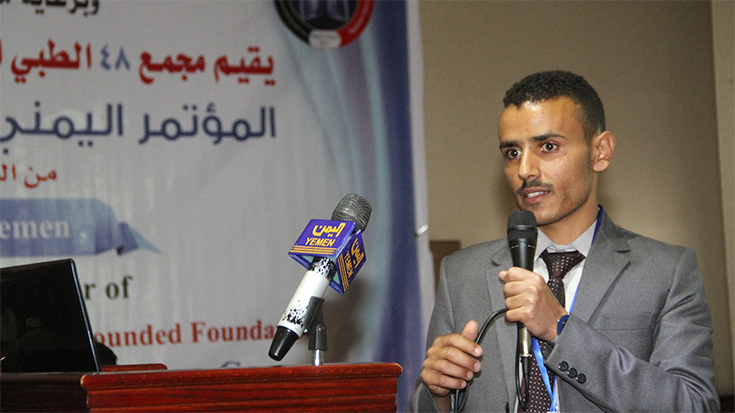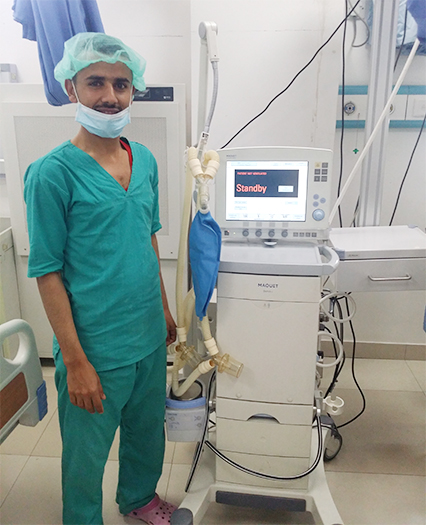
Joining the AARC is a good career move for any respiratory therapist. But when you are one of only a few therapists in your country, it can really set you apart from the crowd.
That’s what happened recently when Saleem Hamilah, BSc, RCP, became the first Yemeni member of the Association in more than a decade.
When they learned of his new membership, his alma mater, Bilquis Medical Institute, threw a big celebration in his honor.
Gateway to respiratory care

Hamilah says he’s actually been using AARC resources he found on the AARC website — including the AARC’s Clinical Practice Guidelines — since he was a student.
“I recommend all RTs in the world to be an AARC member,” Hamilah said, who graduated first in his class. “Why? Because they will have great opportunities to advance.”
Since graduating five years ago, he’s been putting AARC resources to work in his clinical practice — he serves as head of the respiratory care department at Modern European Hospital and respiratory care specialist at 48 Model Hospital — and also in his position as a respiratory care instructor.
“I teach all participants in any course about the AARC and the benefits of becoming an AARC member,” he said. “For me, the AARC is like the gate to respiratory care.”
He’s also reached out to AARC President Brian Walsh, PhD, RRT-NPS, FAARC, and International Council for Respiratory Care President Jerome Sullivan, PhD, RRT, FAARC, seeking their council on a range of issues facing the fledging respiratory care profession in his country.
Filling a need
Hamilah says respiratory care first got started in his country back in 2006 when four nurses from the nation’s largest hospital were sent to study respiratory care in Jordan for a year.
“When they finished their study, they came back to Yemen and started to give some short courses in respiratory care for qualified ICU nurses, and they continued to do such courses till 2016 when we started the first accredited program in respiratory care at Bilquis Medical Institute,” he says
He was drawn to the profession by a desire to help fill the need for RTs in his country. Today, only about eight hospitals have RTs on staff, with respiratory care still provided mainly by nurses in other hospitals.
Hamilah believes he and his fellow RTs are a major benefit to patients with respiratory conditions.
“They are doing a great job in minimizing symptoms, risks, and complications of respiratory diseases,” Hamilah said.
Making progress
Yemeni RTs are working to make respiratory care an independent profession in their country and they took a big step in that direction when they held the first Yemeni Conference of Respiratory Care in November.
Hamilah served as speaker of the scientific case report during the two-day session, which took place Nov. 6-7.
He and his colleagues plan to establish the Yemeni Association for Respiratory Care next year and will also begin the first bachelor’s degree program in respiratory care.
In addition to Dr. Walsh and Dr. Sullivan, Hamilah says they have benefited greatly from the help and advice they have received from AARC members Mohammed Alahmari, RRT, FAARC, and Hassan S. Alorainy, BsRC, RRT, FAARC, from Saudi Arabia.
“I highly appreciate their role in supporting the development of respiratory care specialization in the Middle East and internationally,” Hamilah said.
Email newsroom@aarc.org with questions or comments, we’d love to hear from you.













